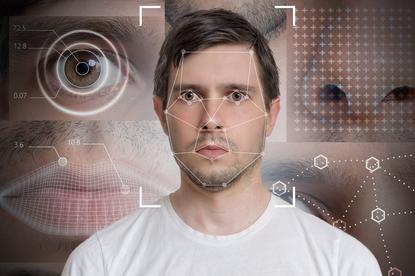Bunnings, Kmart facial recognition use to be investigated by OAIC
- 12 July, 2022 18:03

A month after a Choice report exposed facial recognition being used across multiple Australian retailers, the Office of the Australian Information Commission (OAIC) has opened investigations into Bunnings and Kmart for use of the technology.
The privacy watchdog confirmed on 12 July 2022 it’s commenced investigations into the personal information handling practices of Wesfarmers-owned Bunnings Group and Kmart for their use of facial recognition technology. The OAIC confirmed it’s also commenced preliminary inquiries with Good Guys Discount Warehouses followed public reports the retailer paused its use of facial recognition technology.
The investigations are being pursued under the Australian Privacy Principles under section 40(2) of Australian Privacy Act 1988.
Choice reached out to the OAIC on 15 June 2022 with a request to investigate the trio of retailers for their use of facial recognition technology as a potential breach of consumer privacy. In its submission, the consumer media publisher and advocacy group outlined two main reasons for the concern. The first was the lack of notice and consent in the collection of such sensitive information.
“The retailers' use of online privacy policies and small signage in store as the key mechanisms to provide notice and obtain consent from individuals about the collection of their sensitive information is insufficient and non-compliant,” Choice stated.
Secondly, Choice argued the stated business purpose from these retailers for using facial recognition did not justify its use against the risk posed to individual privacy.
“The retailers' large-scale collection and use of their customers' sensitive information significantly invades the privacy of its customers. It is a disproportionate response to the risk of theft and anti-social behaviour in stores,” Choice stated.
In a post immediately after OAIC announced its investigation, Choice said it welcomed news of further action being taken. “This is a big step forward in protecting Australian consumers from the harms of unnecessary and invasive facial recognition technology,” the statement read.
In the original report, Choice said it had spoken with 25 Australian retailers about whether they used facial recognition and analysed their privacy policies. Based on the policies and the responses received, as well as Choice staff visits to in-store locations, the media site reported Kmart, Bunnings and The Good Guys appeared to be the only three capturing biometric data from their customers.
Choice consumer data advocate, Kate Bower, said privacy policies were hard enough to find online, but it was unlikely consumers were reading these prior to visiting a physical store. And while Kmart and Bunnings did have physical signs posted at store entrances informing customers about the use of the facial recognition technology, these were small and unlikely to have attracted the attention of most shoppers.
Following the Choice report, The Good Guys on 28 June 2022 said it was pausing facial recognition, which had been trialled in two stores as part of an upgraded security system trial and for the purpose of addressing theft.
Bunnings, in a statement to Choice, also stated its use of facial recognition technology was to prevent theft and anti-social behaviour.
Facial recognition remains a controversial technology and one that’s increasingly being scrutinised by privacy regulators. In November last year, the OAIC found Clearview AI in breach of privacy legislation for collecting images and biometric information from individuals in Australia without their consent and for the purposes of commercial gain. The joint investigation had been launched into the US-based company by the Office of the Australian Information Commissioner (OAIC) and the UK Information Commission’s Officer (ICO) and commenced in March 2020.
And tech vendors have been also responding to the privacy concerns over using facial recognition for policing and in society more broadly. In 2020, IBM was the first big tech outfit to announce it was closing down its facial recognition system amid the Black Lives Matter racial discrimination protests in the US and around the world. Amazon and Microsoft followed suit, with all three stating they would no longer provide the technology for policing in the US.
You can also follow CMO on Twitter: @CMOAustralia, take part in the CMO conversation on LinkedIn: CMO ANZ, follow our regular updates via CMO Australia's Linkedin company page

